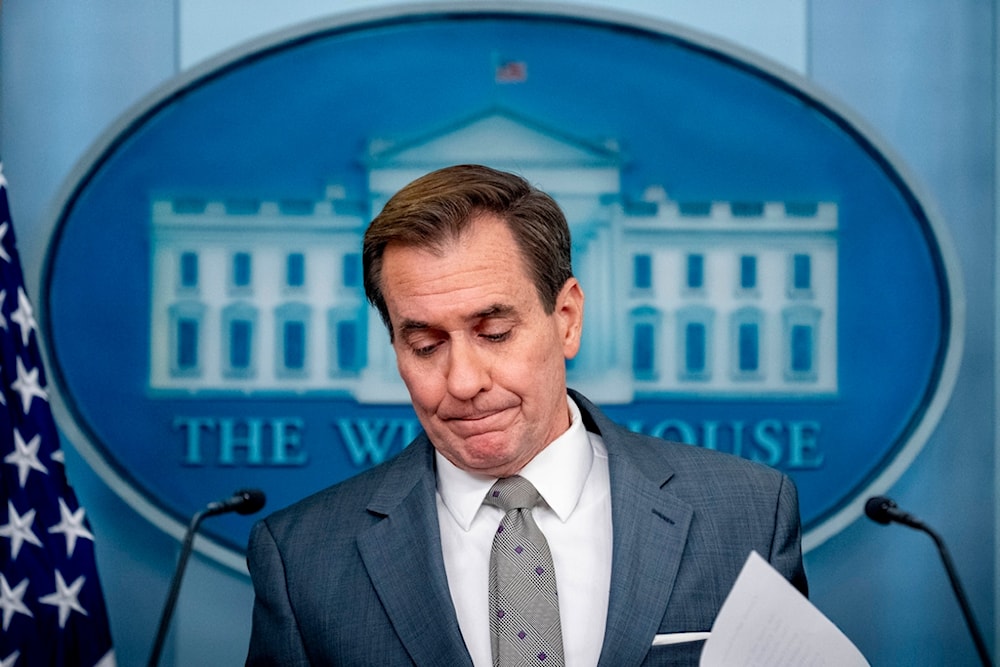US to reimpose sanctions on Venezuela if election conditions not met
This follows Maduro's announcement that the electoral agreements with the opposition were "mortally wounded" following authorities' thwarting of an assassination plot against him.
-

National Security Council spokesman John Kirby pauses while speaking at a press briefing at the White House in Washington, Tuesday, Jan. 23, 2024 (AP Photo/Andrew Harnik)
White House National Security Council spokesperson John Kirby announced on Monday that the United States could allow the sanctions waiver on Venezuela's energy sector to lapse in April if Caracas does not commit to US conditions on Venezuelan elections.
"The Maduro regime... made some commitments about opposition political parties, about free and fair elections and they haven't taken those actions," Kirby said during a press briefing. "They got until April to do so."
Kirby pointed out that the Biden administration has various options at its disposal, including the potential imposition of sanctions. However, he refrained from providing a preview of any specific measures at this time.
Kirby emphasized that Venezuela must permit opposition members to participate in elections and release individuals deemed as "political prisoners."
Read more: Freed Venezuelan Alex Saab says was tortured by US
This comes six days after Venezuelan Prosecutor General Tarek William Saab announced that the country's security forces successfully foiled preparations for five terrorist attacks and conspiracies, resulting in the detention of 27 individuals. The United States contends that the detained individuals include political figures.
One of the terrorist operations involved assassinating Venezuelan President Nicolas Maduro himself. Maduro accused both the CIA and the Colombian army of being involved in the plot and said that agreements with the opposition over the country's 2024 presidential election were "mortally wounded" as a result of the plots.
Read more: Maduro says election agreement with opposition 'mortally wounded'
Electoral conspiracy at play
This comes against the backdrop of an electoral agreement that was brokered by the US.
This deal involves providing relief from energy sanctions on President Nicolás Maduro's administration in exchange for implementing measures to open up the electoral process, including permitting European Union observers and establishing a procedure to lift bans on top opponents, allowing for a more equitable political environment.
On October 16, 2023, the Venezuelan government and the opposition effectively reached an agreement on new electoral conditions, but later that month, the Venezuelan high court suspended the entire opposition primary election process, including its results.
Read more: US to review Venezuela sanctions relief over 'inadequate progress'
According to Telesur, multiple irregularities were reported in these primaries, including voter uncertainty about polling locations and the presence of polling centers within private residences.
As a result, some candidates withdrew, and one of the vice presidents of the commission for the opposition primaries called for CNE's involvement in the process due to these issues.
"How can an election be competitive if two candidates have resigned, leaving only one with a chance?" the National Assembly president Jorge Rodriguez asked last Thursday, asserting that the primary elections held on October 22 cannot be deemed legitimate elections because of their deficiency in quality and verifiability.
Due to the prevalence of corruption among the opposition, the high court was compelled to annul the primaries.
Read more: Maduro says 'Bolivarian fury' plan activated in face of terrorism

 3 Min Read
3 Min Read








